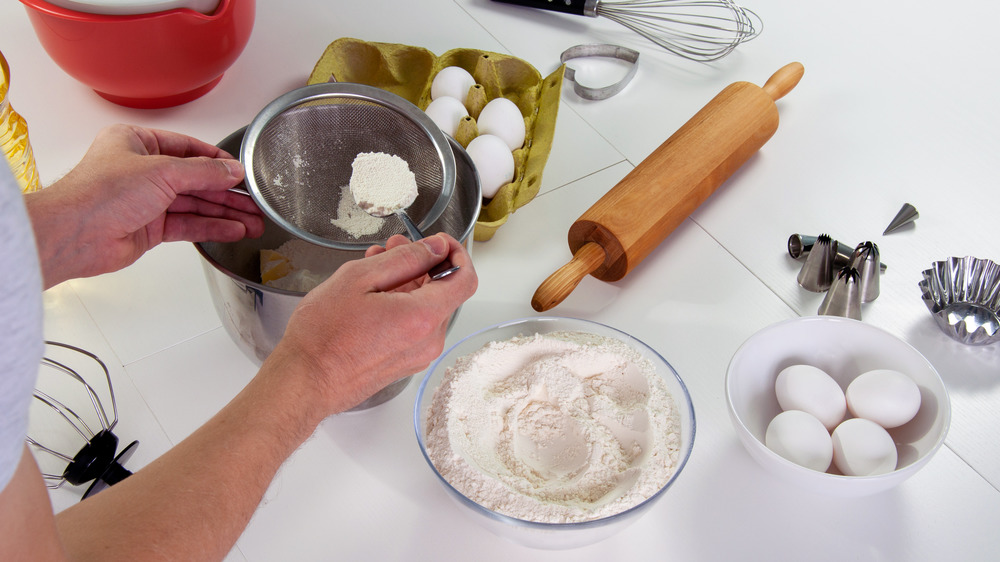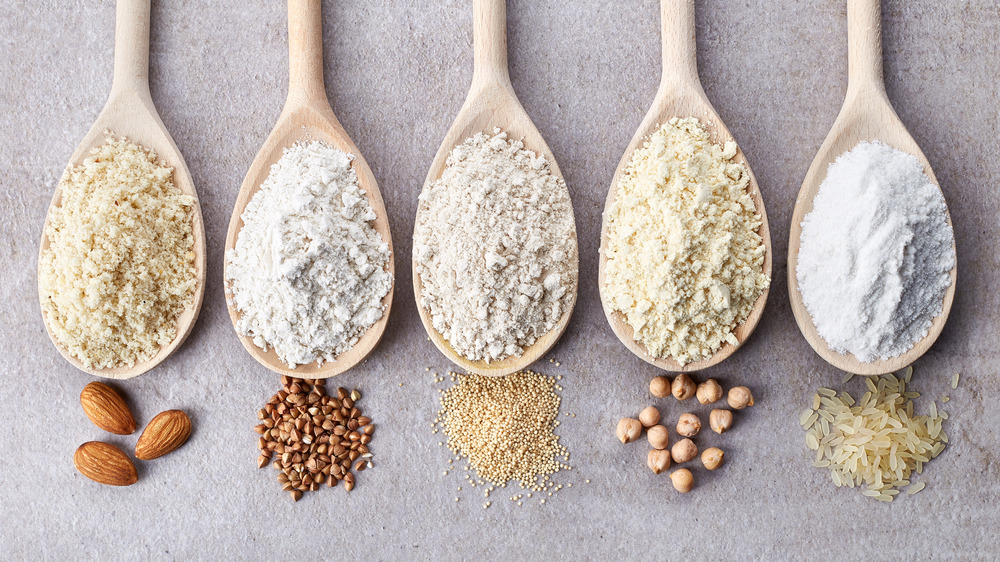The One Baking Ingredient You Should Never Skimp On
There's a lot that can go wrong when baking. Flat, cardboard-like cake. Cookies that spread all over the pan and fuse together. Tough, chewy biscuits. Burned pie. You might wonder where you're going wrong with your baking projects, and according to one pro, you should start with the basics. Mashed spoke with Brittany Lavallee, cake decorator and bakery expert at Publix, about what ingredient you need to be the most precise with.
This might not come as much of a surprise, but it's the flour, not your eggs or butter, that is the most crucial part of any baked good. It's a key ingredient because, as Lavallee said, "Baking is very much a science and without the flour we don't have a foundation to build on." Flour is what gives an entire baked good structure, because it has special proteins that bind together with water to give us gluten, according to a guide from the University of Nebraska. Gluten, in turn, can stretch and hold its shape as a baked product rises and releases gases.
What happens when you don't get the right amount of flour?
Lavallee said that leaving out flour completely would result in a flat, running product and that adding the right amount of flour is also important. "Leaving flour out of a recipe that calls for it would be like building a house without a floor," she said. But "Not adding enough flour would change the texture and consistency resulting in the dough spreading more as it does not have enough gluten or protein present to hold it together." Flour substituters, take note. You might think leaving in your flour is a no-brainer — but not all baking is the same.
Much of gluten-free baking does exactly what Lavallee advises against: it leaves out the flour. That's why achieving the right consistency in gluten-free baked goods can be such a challenge. You can't just swap in an equal amount of coconut flour for regular flour, for example (via Nourished Kitchen) because all flours behave differently, even different wheat flours. As Lavallee said, not all flours act the same. "Flour used for making bread and flour used for baking cakes or cookies contain different amounts of gluten or protein that will best fit the intended outcome," she said. So if you're low on flour, you might want to rethink your next baking project — flour is simply something you can't skimp on.

